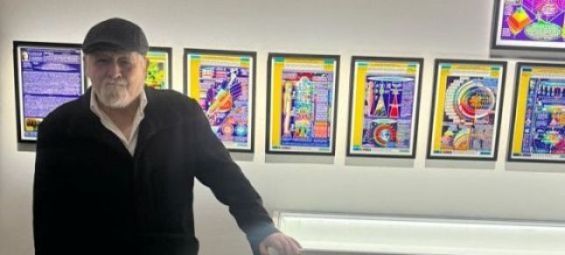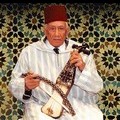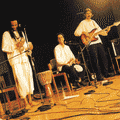At the Palais de Tokyo in Paris, Mohamed Bourouissa's exhibition «Signal» showcases not only his work but also that of other creators he invited. From February 16 to June 30, 2024, the walls of this renowned contemporary art institution become a collective canvas, featuring Moroccan artist Abdelmajid Mehdi. Seen from afar, the creations of this architect are described by certain specialists as outsider art. But on closer inspection, Mehdi's creations reveal themselves to be far more intricate, even defying easy categorization due to their ingenuity.
Now highlighted at the Palais de Tokyo, the Taza native found solace and a powerful outlet in artistic expression, reading, and spiritual exploration during his period of homelessness between 2007 and 2022. His artistic talent, evident since the age of seven, fueled his inner strength to «build [his] future», as he puts it. He spent his nights in his small car, and his days immersed in reading and drawing at libraries, envisioning the future he would create for himself once he found stable housing.

Mehdi's journey began in France in 1970. After completing his schooling in his hometown, he left Morocco at the age of 20 to pursue a career in the automobile industry. «We were promised work in that field», he recalls. «Unfortunately, upon arrival, my friends and I were sent north to a rag factory. Refusing that assignment, we returned to Paris to find other jobs. Eventually, we ended up working in a plywood and PVC factory in Normandy». Despite taking on multiple jobs, Mehdi faced a harsh reality - exclusion followed by precariousness, ultimately leading to a period of poverty when he could no longer afford rent.
Drawing and rebuilding a future
In Poitiers, Abdelmajid Mehdi first found shelter with priests who offered him a roof over his head. However, after four years, he found himself back on the streets. He then travelled from Poitiers to Paris, across the Paris region, and eventually moved from Clichy to Vitry. Throughout these difficult decades, his family ties gradually faded.
«My father had arrived in France in 1963, but he was preparing to return to Morocco when I left», Abdelmajid Mehdi explains. «He resettled there in 1971 and passed away around 1985. Since I remained in France, I never saw him again before his death. I also missed my mother's passing. All my relatives stayed in Morocco. My sister and brother left as well, leaving me isolated abroad as the eldest of three brothers. I haven't returned to Morocco since 1996».

Even during his most challenging times, Abdelmajid Mehdi never stopped seeking knowledge. His thirst for learning is evident in his curiosity and passion for reading, especially newspapers, to stay informed about current events. «Information is a daily ritual for me, as essential as eating and drinking», he confides. «Newspapers provided me with information about exhibitions, cultural articles, and a variety of other topics», he emphasizes. «This is how I trained myself: drawing in my car and in libraries».
During this period, despite the loss of ties with his homeland, Abdelmajid Mehdi confided in us that for about ten years he has been designing «futuristic architectural projects for Morocco». He harbors a hope of one day finding a way to connect with the government or even the Royal Palace to present them. These are unpublished works he hopes to one day present, as they deserve to be seen. Having been the victim of theft of his creations over several years, the artist takes care not to widely distribute his work outside authorized contexts.
Memories of home as a lifeline
Maintaining his connection to the landmarks of his childhood and youth in Morocco also played a crucial role in keeping Abdelmajid Mehdi afloat during his fifteen years of homelessness. «Even when sleeping folded up in a small car, you can still find the creative energy to make art, drawings, study, and fuel your knowledge and creativity», the artist reflects. He credits his spirituality, religion, faith, and willpower as his driving forces. He recalls strengthening his spirituality between the ages of 16 and 20 in Taza by accompanying religious siblings to visit patron saints after early morning prayers.

«I learned the Quran through these siblings, during group recitations», he explains. «Now, I also create works of art inspired by the Quran. I explore the mystical relationship between humans, the divine, and the universe. I must say that God has not abandoned me. He instilled in me this spirit of questioning the beyond and imagining how the soul transcends the physical body».
Hope and kindness lead the way out
Ultimately, Abdelmajid Mehdi's unwavering hope for the future and the kindness of strangers helped him rise above the difficult circumstances he faced. His initial step out of homelessness came when neighbors offered him a caravan to live in. Among the many beautiful friendships forged through solidarity, his bond with Shérazade, one of his closest companions, stands out. With her help and the support of other kind individuals, Abdelmajid has finally secured stable housing since December 2022.
An exhibition in Morocco would be a significant turning point for the artist, who last exhibited his work in Taza at the age of 16. «If I could establish good connections in Morocco», he reflects, «I might be able to return, with boxes full of my artwork...»




 chargement...
chargement...












